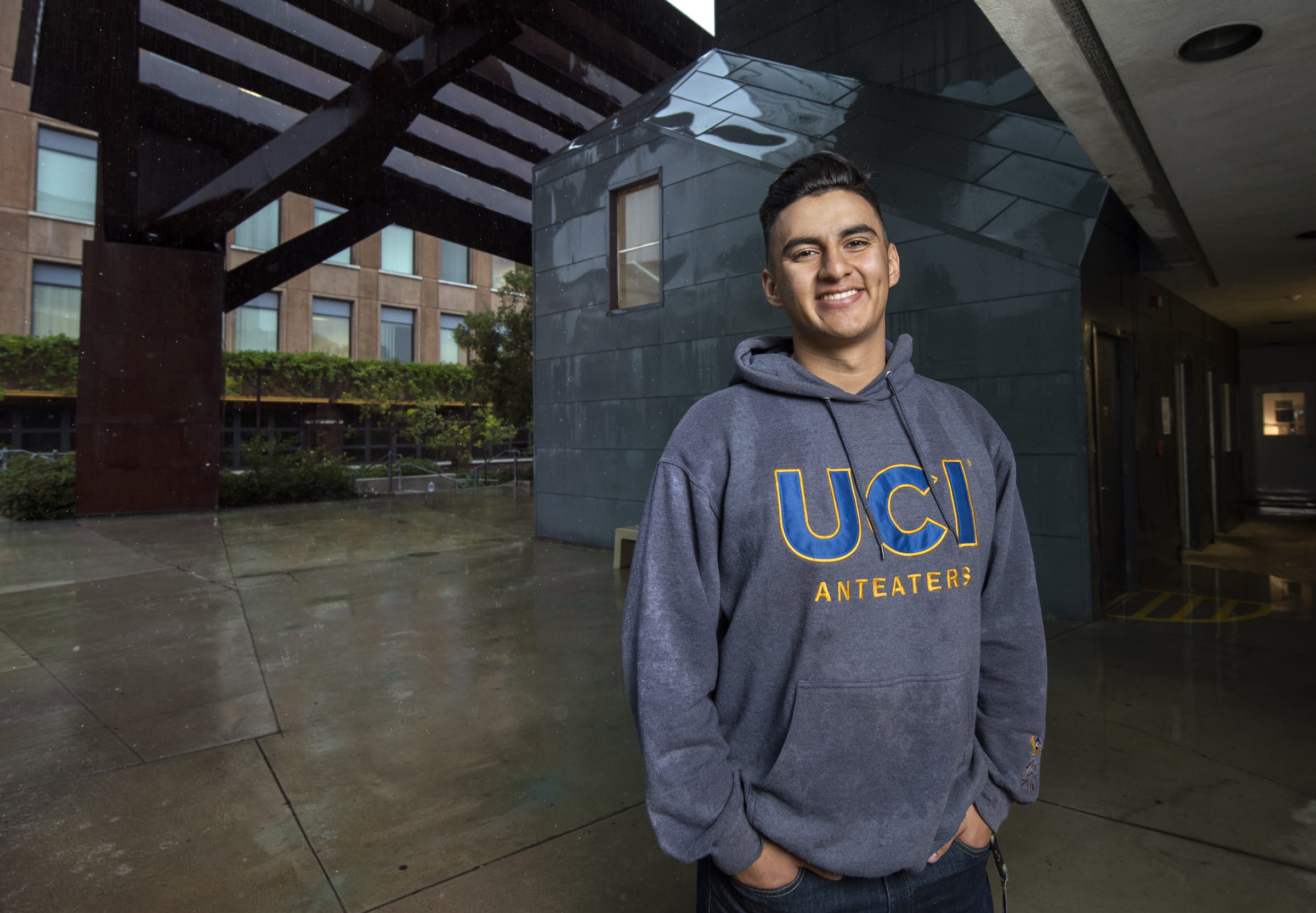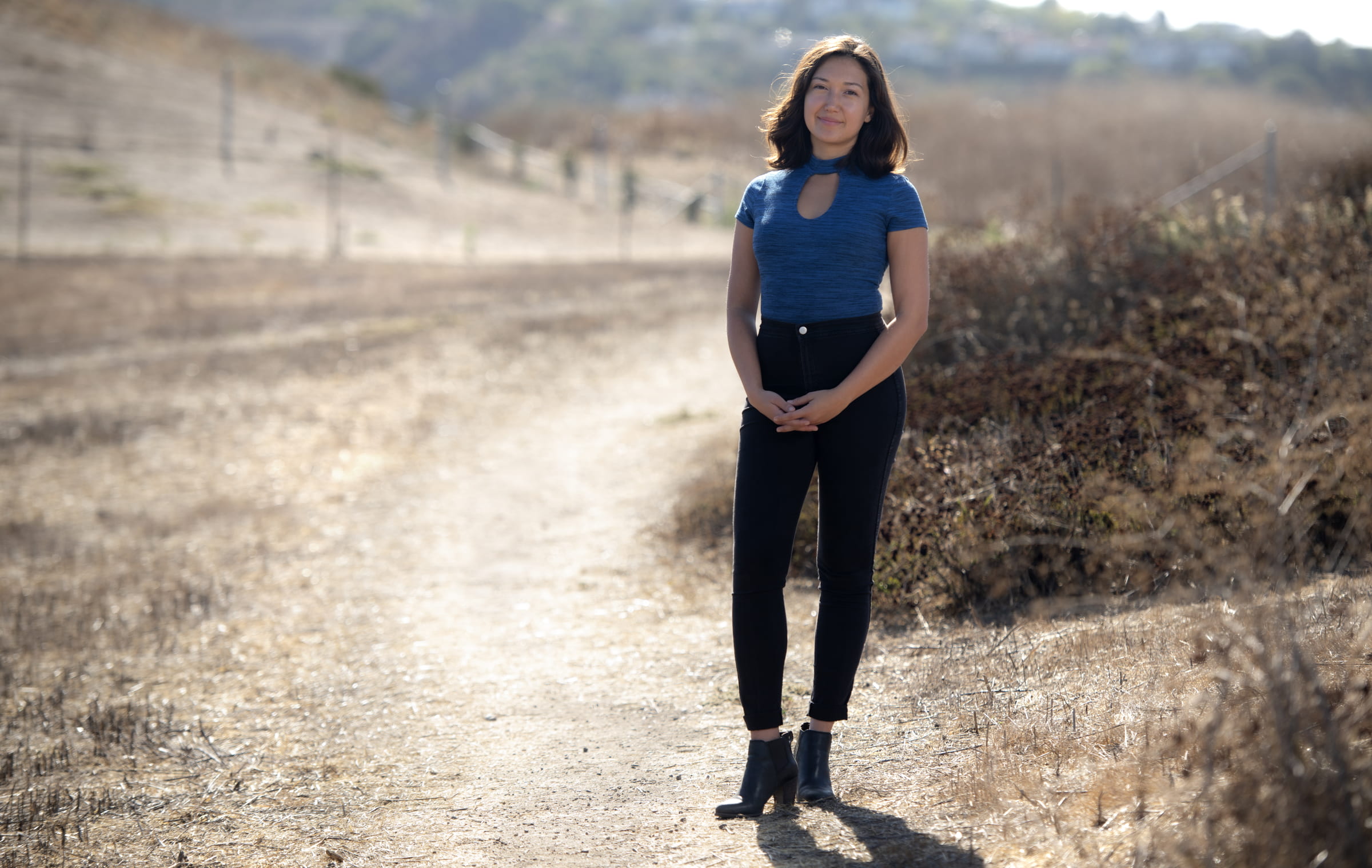Branching out
UCI strives to boost number of minority students earning STEM degrees

Marlon Pinedo had never taken a chemistry course. So when he learned that the subject was part of a summer residential program preparing incoming freshmen for the transition from high school to UCI, he was more than a little nervous. But by the end of those three weeks, Pinedo felt a lot more confident.
That’s the idea behind the California Alliance for Minority Participation, a statewide initiative funded by the National Science Foundation to increase the number of students from historically underrepresented communities who earn degrees in science, technology, engineering and math majors. It’s housed under the umbrella of the nationwide Louis Stokes Alliance for Minority Participation, named after the first African American member of Congress from Ohio, who was a champion of education equity.
UCI’s CAMP programs include the two-unit Summer Science Academy, the Edison STEM Transfer Scholarship and the Summer Research Scholars. These offer such free services and resources as experiential learning, mentoring and tutoring, information sharing, financial aid, book and technology loans, a computer lab and study space, conference sponsorship and assistance preparing for standardized exams such as the GRE.
“Students at every education level have a unique set of academic needs; therefore, we are very intentional in the work that we do to meet students where they are,” says UCI CAMP director Pheather R. Harris. “We also seek to build community through our formalized programs. It’s so important. This is a large institution with a lot of resources and opportunities, so we try to create a smaller space within the larger environment. Part of that strategy includes enhancing partnerships on campus to ensure that students receive comprehensive support when they visit the space.”
At last year’s Summer Science Academy, Pinedo and 40 other underrepresented students in STEM were required to complete chemistry and math classes. The amount of work – culminating in a research paper and presentation – was rigorous, but the students forged support networks with each other, which helped them succeed. In fact, they hang out and study together to this day.
“The math class was a review of what I’d already learned, but it was a really good refresher. Going into my fall-quarter math course, I just picked up where I had left off,” says Pinedo, who’s majoring in materials science & engineering. “And that summer introduction to chemistry helped me earn a solid B in the fall class. If I had just jumped into chem, it would’ve been a lot harder.”

Fellow CAMP Scholar Mohamed Idris, a senior in mechanical engineering who came to UCI from Saddleback College, was awarded the Edison STEM Transfer Scholarship, which provides $15,000 over two years to promising STEM transferees from underrepresented communities. Recipients must maintain a GPA of at least 3.0 and complete 25 hours of community service annually.
Idris, who tutored in math to fulfill the latter requirement, was able to get a head start on paying off his student debt and to visit his family back home in Sudan. “I never took [financial aid] for granted,” he says. “From high school until today, I’ve worked, but the scholarship helped me a lot.”
He aspires to design products that can assist underprivileged people in developing nations. “There are so many things they lack, so it’s here that I get the opportunity to try to come up with something that will impact thousands – even millions – of people overseas,” Idris says. “That’s why I focus on engineering.”
This past summer, third-year biological sciences major Alyssa Carrillo participated in CAMP’s 10-week Summer Research Scholars program, which teaches eligible students how to conduct undergraduate research. In addition, it offers them the opportunity to engage in meaningful discussions with their peers, access literature on best research practices, hear from graduate students in STEM about their academic experiences, and attend workshops focused on graduate school preparedness.

“This program was essential in deciding my ultimate career goals. It gave me a clearer understanding of my identity and my potential at this university,” says Carrillo, who wants to work in the medical field as either a physician or researcher. “The most incredible part is that I was provided so much guidance and so many resources free of charge. I received a stipend that helped with my summer living expenses. I also got a free backpack, hard drive and binder to kick-start my journey in research.”
Like Pinedo, Carrillo met her closest friends at UCI in the CAMP Summer Science Academy; she enjoyed a similar spirit of camaraderie in the Summer Research Scholars program. And it’s that sense of community that makes all the difference. “Being with my CAMP peers, who come from similar backgrounds, allowed me to feel more comfortable sharing my struggles and experiences with others,” Carrillo says.

